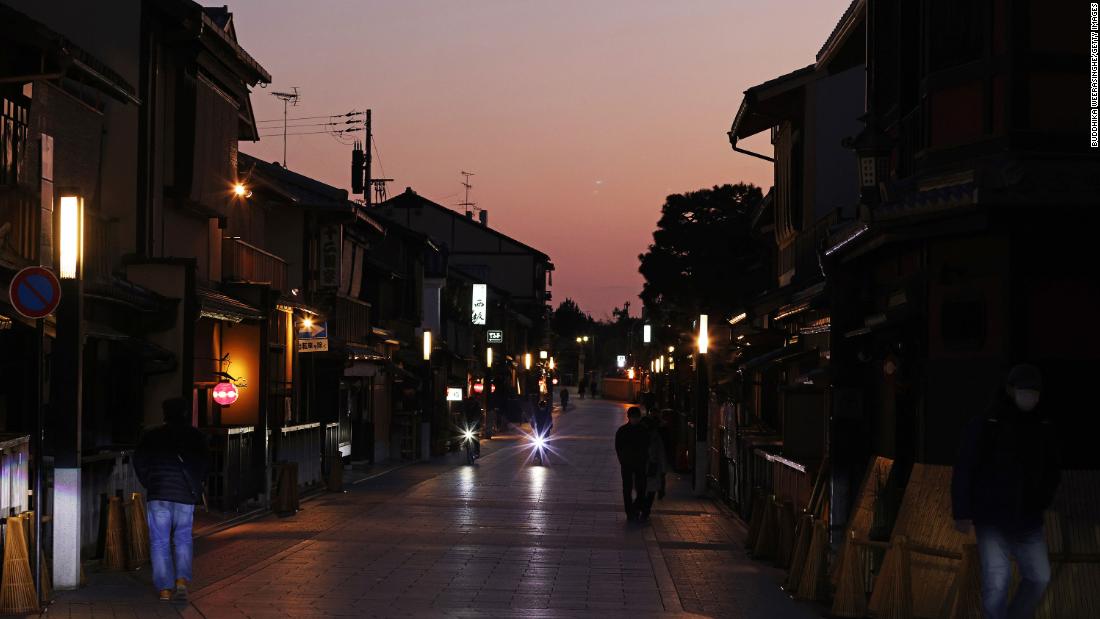
The move comes as questions remain about the country’s readiness to host the Olympics, which will take place in Tokyo this summer from July 23 to August 8.
Suga told the Japanese parliament on Tuesday that he plans to extend the state of emergency – which expires on Sunday – to March 7 for 10 of the prefectures. The state of emergency will be lifted for one prefecture, he said.
That decision has yet to be finalized by the government’s coronavirus task force, and Suga is expected to hold a press conference on state of emergency rules Tuesday evening.
Japan’s Ministry of Health reported 1,792 new coronavirus cases and 72 additional deaths on Monday, bringing the country’s total number of cases to more than 392,000 and more than 5,800 deaths. Nearly 50,000 Covid-19 patients have required hospital-level medical care as of Monday.
About a third of the confirmed cases are in the capital, Tokyo, which reported fewer than 500 new cases Monday for the first time since December 28.
While the country grapples with its current peak caused in part by freezing temperatures in winter, it is also grappling with mixed messages and fatigue from the coronavirus as it was one of the earliest hit by the pandemic.
Suga has been criticized for what is seen as his reluctance to take action to stop the spread of the virus. Kenji Shibuya, director of the Institute for Population Health at King’s College London, said in January that Japan’s response is “too slow and confusing.”